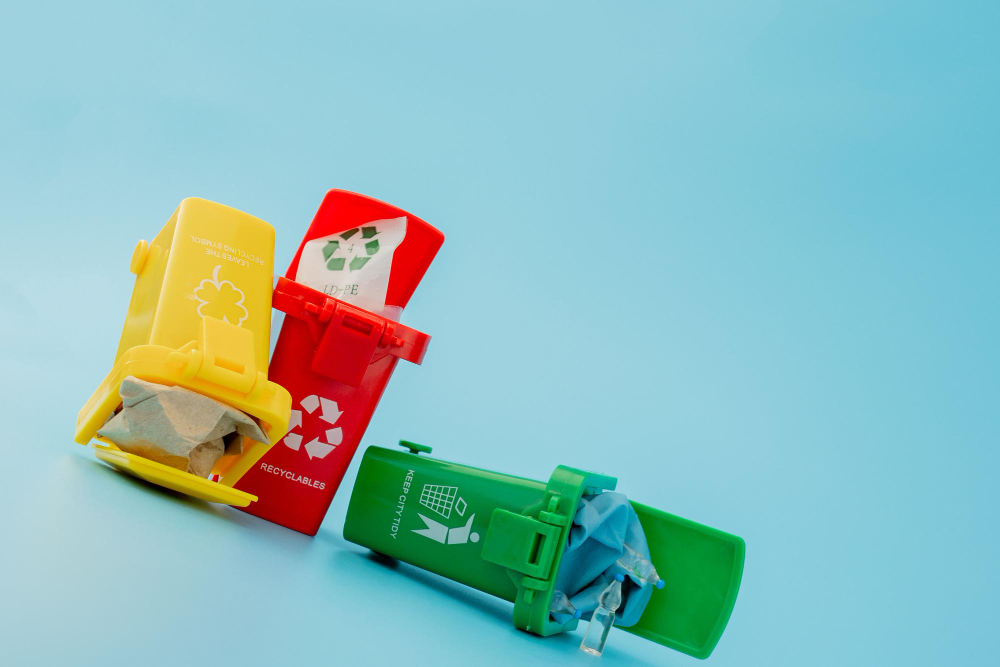
Waste Management: Innovative Solutions for a Sustainable Future

Waste management plays a crucial role in shaping a sustainable future. As the world faces increased population growth and environmental challenges, innovative solutions are becoming more important in managing waste and conserving natural resources. From recycling advancements to waste-to-energy technologies and more eco-friendly methods for treating hazardous materials, innovations in waste management are paving the way for a cleaner, greener future. Below are key innovations in waste management that are making a significant impact.
- Advancements in Recycling Technologies
Recycling is one of the most effective ways to reduce waste, and recent technological advancements have made recycling systems more efficient and effective. Traditional recycling methods have been improved with the integration of automation, AI, and robotics. Automated sorting systems are now able to quickly and accurately identify and separate recyclable materials, minimizing contamination in the recycling stream. This results in higher-quality materials being recovered and a more streamlined recycling process. Additionally, chemical recycling has emerged as a promising solution for handling complex materials like plastics, which were traditionally difficult to recycle. This process breaks down plastic waste into its chemical components, allowing it to be reused to create new products, significantly reducing landfill waste.
- Public Education and Behavior Change
While technological advancements are critical to waste management, behavioral change, and public education are just as important. A significant part of managing waste sustainably involves helping individuals and businesses make responsible choices about their consumption habits and waste practices. Leaders, such as Patrick Dovigi, emphasize the importance of incorporating sustainable behaviors into daily life. Public education campaigns on proper waste sorting, reducing food waste, and the benefits of recycling are helping to increase awareness and encourage environmentally conscious decisions. Additionally, encouraging the adoption of sustainable practices, such as buying eco-friendly products or reducing single-use plastics, can significantly reduce the amount of waste generated. These behavioral shifts are essential for creating a sustainable waste management system that supports long-term environmental health.
- Waste-to-Energy Technologies
Waste-to-energy (WTE) technologies provide an innovative way to convert non-recyclable waste materials into energy, reducing waste and simultaneously generating power. Using advanced techniques such as incineration, gasification, or anaerobic digestion, WTE plants can transform waste into usable forms of energy like electricity or heat. This not only helps reduce reliance on fossil fuels but also prevents waste from accumulating in landfills. As WTE technologies continue to evolve, the efficiency of these systems is improving, and they are increasingly capable of processing a variety of waste types. By utilizing waste for energy production, WTE technologies offer a practical solution for managing waste while reducing the carbon footprint associated with traditional energy sources.
- The Circular Economy Approach
One of the most transformative concepts in waste management is the shift toward a circular economy. Rather than following a traditional “take, make, dispose” model, a circular economy focuses on keeping products, materials, and resources in use for as long as possible. This is achieved through strategies like product redesign, recycling, reuse, and repair. By incorporating circular economy principles, businesses and consumers can minimize waste and extend the lifecycle of materials, reducing the need for raw materials and lowering environmental impact. The circular economy is not only an innovative solution for managing waste but also a path toward reducing resource consumption, conserving energy, and cutting greenhouse gas emissions.
- Promoting Sustainability Across Industries
Waste management innovations are not limited to municipal systems. Many companies are increasingly adopting sustainable practices, such as reducing their carbon footprints, minimizing packaging waste, and investing in greener production processes. By incorporating waste reduction and recycling into their business models, industries are contributing to a more sustainable future while also improving their operational efficiency. The drive for sustainability is gaining momentum across sectors, from manufacturing to agriculture, with businesses implementing measures that reduce waste generation and promote resource conservation.
The role of innovation in waste management cannot be overstated. As technology evolves and public awareness grows, it’s clear that the future of waste management holds promising potential. With continued innovation and collective action, we are moving toward a more sustainable and eco-friendly world.